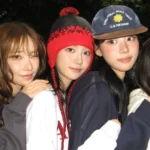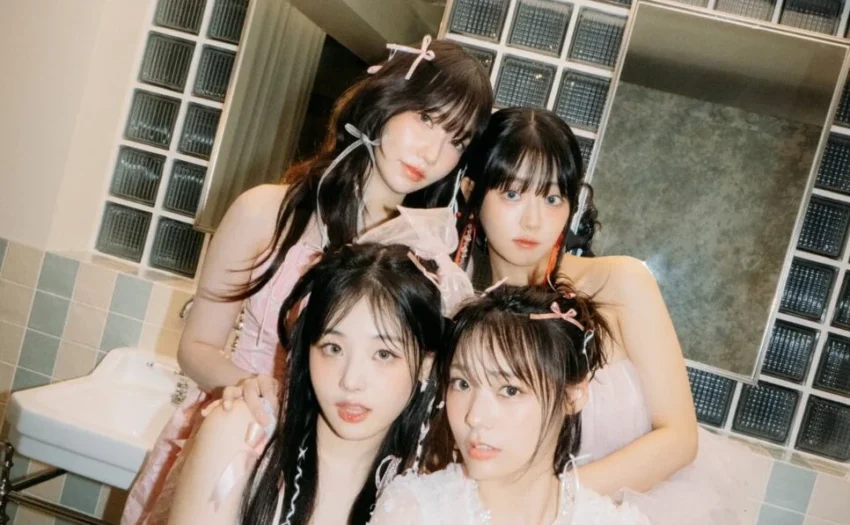QWER and THE BOYZ stand at the center of a growing light stick controversy that has shaken the K-pop scene. The debate extends beyond design similarities, raising questions about whether idol customs outweigh legal principles. As both agencies prepare for court action, the case may redefine artistic boundaries within the modern idol industry.
QWER and THE BOYZ Spark Light Stick Controversy
A fierce light stick controversy has erupted in the K-pop world, pitting QWER and THE BOYZ against each other. The dispute began when QWER revealed a megaphone-shaped light stick for its first global tour. Fans of THE BOYZ, who released a similar design in 2021, accused QWER of copying their concept. THE BOYZ even registered its design in 2022, adding legal weight to their claim. What began as a fan quarrel has now evolved into a full-blown cultural debate within the idol industry.
Fan Conflict Escalates Beyond Control
Tensions quickly flared online as supporters of both groups clashed across platforms. THE BOYZ fans accused QWER of plagiarism, while QWER’s defenders argued that the designs only looked alike from a distance. QWER’s agency, 3Y CORPORATION, announced legal action against malicious posts as the situation turned toxic. Member Siyeon urged restraint, writing that even anonymous users must act like humans toward one another. Yet violence loomed when a post on X threatened to “kill QWER,” shocking both fandoms and prompting industry concern.
QWER Continues amid Light Stick Controversy
Despite public outrage, QWER proceeded with sales of its light stick and related merchandise. The band emphasized creative independence and refused to yield under pressure. Meanwhile, THE BOYZ’s label, One Hundred Label, said it had discussed possible design revisions with QWER but failed to reach an agreement. The label then vowed to take firm legal action in cooperation with relevant institutions. The confrontation had officially left fandom circles and entered corporate and institutional arenas.
Industry Associations Enter the QWER Light Stick Controversy
As the QWER light stick controversy intensified, two major organizations stepped in: the Korea Entertainment Producers Association and the Korea Management Federation. They expressed willingness to mediate but avoided taking a clear stance. Still, their tone suggested sympathy toward THE BOYZ’s argument that QWER had ignored long-standing idol customs. Several media outlets echoed this view, claiming QWER had broken an unspoken rule that forbids copying another group’s symbolic object. QWER now stood alone, facing mounting public and institutional pressure.
Idol Custom versus Legal Principle
At the heart of this feud lies a deeper question: should K-pop customs override legal definitions of originality? THE BOYZ’s side insists that respecting industry tradition protects creative integrity and prevents confusion among fans. QWER counters that no group can legally monopolize the megaphone concept because it is an ordinary object. The band also highlights its identity as a live-performing group that often uses real megaphones on stage. If proven, this context could make their light stick an authentic extension of their artistry rather than imitation.
The Future of K-pop Ethics and Law
This conflict has grown into a symbolic test of how K-pop defines fairness and creativity. As both agencies prepare for legal proceedings, the outcome may set a precedent for future design disputes. For now, QWER and THE BOYZ fans must step back, avoid hostility, and let the legal process unfold. The incident exposes an uncomfortable truth: K-pop’s emotional loyalty sometimes clashes with rational boundaries, reminding everyone that passion must coexist with respect and law.

The dispute centers on whether QWER’s megaphone-shaped light stick violates idol industry customs or remains legally acceptable. It reflects the ongoing tension between creative freedom and traditional norms in K-pop.
Thank you so much for reading this post! I’d love to hear your thoughts, so feel free to share them in the comments!


The only thing that counts in the light stick drama is what the court decides, end of story. Remember that post about Koreans hating on QWER ‘cuz they were streamers? Feels like it’s the same toxic people causing trouble with the light stick, ugh.